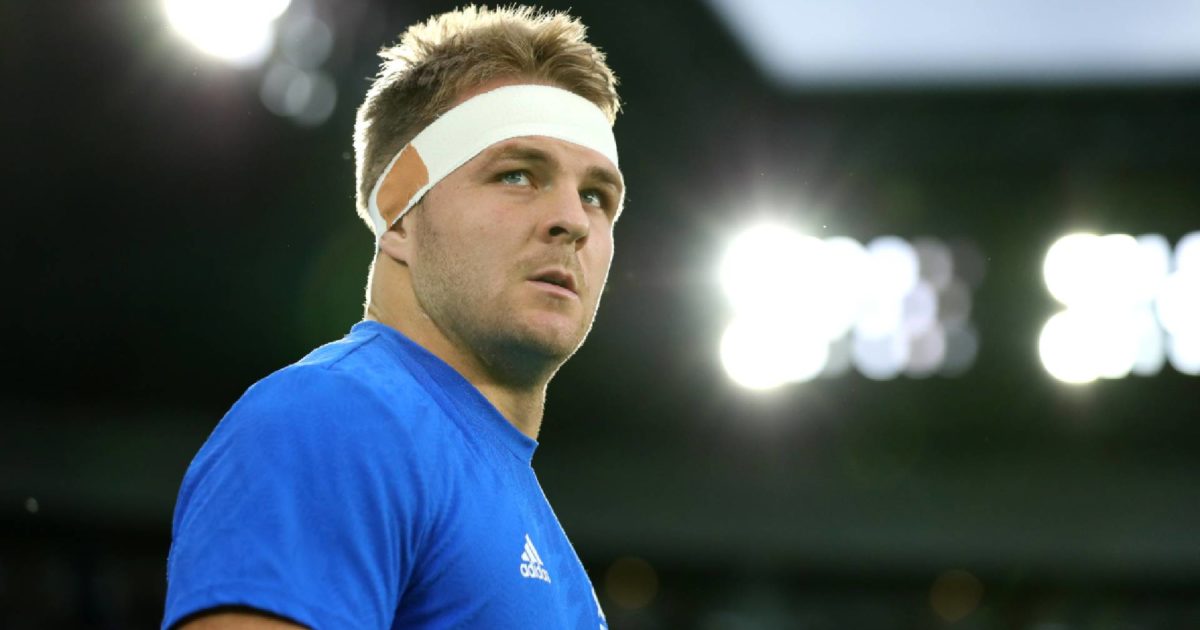Why Sam Cane was always the right man for the All Blacks captaincy

Sam Cane was always the right man to next lead the All Blacks. There isn’t a solid argument to be had against his appointment.
It wasn’t Sam Whitelock, it wasn’t Beauden Barrett, and it wasn’t Ardie Savea. In the end, choosing Sam Cane is a justified decision from All Blacks coach Ian Foster and a good reward for the loose forward’s proven track record.
Almost out of nowhere, perhaps to generate some positive headlines in the backdrop of so much uncertainty about the state of the game, Ian Foster says it’s the respect of the dressing room which helped confirm his ‘gut-feel’ that Cane was the right man for the job.
The All Blacks coach has made the right decision and managed to win over his assistant coaches and top selector Grant Fox. It’s a decision that some of Cane’s rivals for the same role may be disappointed in, but not one that can be argued against.
Cane brings the ability to lead exceptionally well and this is perhaps the most valuable tool that the All Blacks will need heading into the next cycle. Cane has several years of playing time still ahead of him and knows full well the run through development, growth and succession management systems that the All Blacks have behind the scenes.
In fact, Cane has been a part of the All Blacks senior leadership for the past six years, during which time the side won a second consecutive Rugby World Cup in 2015.
His pedigree is undeniable. In many ways, Cane was groomed for this role, only he could make the decision to commit to it.
Furthermore, Cane has never departed from the course at any moment. There was no stint in Japan, no talk of wanting to leave and play in the NRL on a podcast, and no moving of Super Rugby franchises.
Cane is as solid as they come and that’s exactly what the All Blacks tend to want out of their captains.
They want individuals who have immense physicality that sees them lead through actions on the field and not just words, and an even more immense sense of loyalty to every part of their game when representing New Zealand Rugby at all levels.
Cane also talks well with media and can articulate himself well, bringing a level of understanding to that part of the job that few others have the tolerance for.
The only question Foster had to ask himself was if there was anyone else in the All Blacks with the pedigree to lead through the entirety of the next World Cup cycle.
Only one man ticked just as many of the boxes, that was Sam Whitelock. Both Cane and Whitelock have taken turns at leading the All Blacks during what was a shaky four years for Kieran Read.
https://www.instagram.com/p/B_0vlUCg1t0/?utm_source=ig_web_copy_link
Where Cane wins is in age and stability. How much did Whitelock deciding to go to Japan for a stint play on the mind of Ian Foster? If history shows us anything, probably a lot.
Much has also been made of where Cane is most likely to play for the All Blacks long term. Experiments at No.8 and No.6 have provided good results, and despite being benched for the 2019 Rugby World Cup semifinal against England, Cane is similar to fellow forward Dane Coles in that he provides serious bursts of physicality and agility late in games.
But as a starter, Cane has the ability to break the will of opposition at the breakdown, often turning over the ball when defending close to a try line to completely snuff out opposition momentum.
Position wise, there is a gap to fill at the back of the scrum, don’t be surprised if Cane becomes the long-term No. 8.
Add to that the grit Cane possesses, look no further than a devastating neck injury in 2018 for proof of that, but also a mind that anticipates moments on a rugby field which is matched by few.
These two aspects, coupled with a high level of maturity and respect, saw Cane catch the eye of All Blacks hierarchy very early on even before making his debut in the black jersey.
As for when Cane and the rest of the All Blacks will get time on the park, that’s the next big question.













































